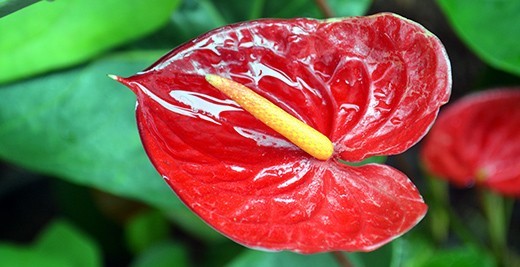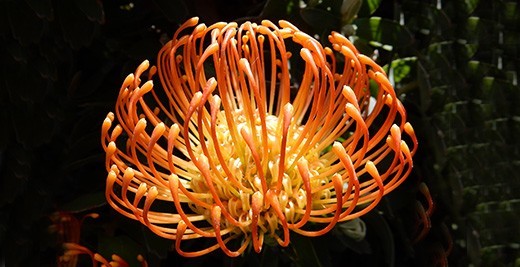
Difficult movement, stiffness and tremor are among the first symptoms that come to mind when we say “Parkinson's disease”. What does Western medical science see as its cause? And what view does Traditional Chinese Medicine have? Why does the disease not only mean stagnation and withdrawal, but also a “return to the future”? These and other questions can be answered in the following lines.
The Western medicine perspective
The medical science dictionary explains Parkinson's disease as a neurodegenerative disease of the central nervous system. In this disease, patients lose nerve cells in the part of the brain called the “black substance” which normally produce dopamine (a neurotransmitter that ensures the transmission of signals between nerve cells). Its lack makes patients unable to control their movements. During the day, however, patients’ state may change – sometimes they act as (almost) healthy persons, and then they can only sit stiffly making the utmost effort. At the same time, however, they often suffer from involuntary movements - especially tremor, which does not allow them to write, speak, and generally makes communication difficult. It is even more frustrating for the affected persons because even though they seem “sick” at first sight, their brain and intellect often work at full speed.
The disease was already known in ancient times, but it was described by a London doctor James Parkinson only two hundred years ago. However, there is still no consensus on the causes of the disease. However, scientists tend to predict that it appears due to genetic predispositions and environmental influences.
People over 50 are at greater risk of Parkinson's disease. However, the disease develops earlier in about 15% of cases. For example, Michael J. Fox, a Canadian actor known from the Return to the Future trilogy, was diagnosed with Parkinson at the age of 30. For the next ten years, however, he continued his successful acting career. He then founded the Parkinson's Disease Research Foundation and wrote a book Happy Man about his experiences.
Traditional Chinese Medicine Perspective
In Parkinson's disease, TCM primarily sees the signs of liver wind, which is manifested in the body by tremors, severe dizziness and fluctuation, muscle twitching, tics and numbness or formication of the limbs. The wind, however, finds itself in the liver mainly due to the insufficiency of blood and its yin essence, thus failing to nourish the tendons and ligaments. However, the wind can also be caused by the liver fire, heat, or the rise of the liver yang. If we were to give a more illustrative example, imagine yin as oil in the engine, but the oil level is low (insufficiency of yin and blood in the liver and kidneys) so the engine overheats after a while (rising yang and wind). Or the engine is already overheated (fire and heat of the liver) and the air is rippling over the hot hood and the hot wind is getting stronger. For the treatment of Parkinson's disease, it is therefore necessary to nourish the liver, get the blood going and calm the wind.
Causes of origin
1. Overwork and excessive sexual activity
A frequent disorder of contemporary civilization is overwork, which, in addition, is (im)properly spiced with long-term stress and lack of rest. This significantly weakens the essence and yin of the kidneys - our imaginary reservoir of vital energy. If, especially in men, this aggressive lifestyle is accompanied by too frequent sex, the essence of the kidneys is weakened even more. The kidneys in a state of acute deficiency then produce an even greater internal wind.
2. Eating habits
If we eat excessively fatty and greasy foods or sweets, mucus is stored in our bodies. Indulging on alcohol often adds also fire, which increases the unhealthy effects of mucus. Just as the proverb states that there is no smoke without fire, here the fire blows up the wind in the body with even more devastating consequences.
3. Emotional stress
If rage, anger or frustration break out in us, the liver yang rises even more. A sharp gust of wind will not be long in coming, and the consequences of a devastating storm can then be found in all limbs of our body and impulses of our actions.
Which therapy to choose?
Generally, you should first quiet your emotions. Specific cases can then go in four basic directions:
1. Insufficiency of liver blood, which generates an internal wind
Patients have tremors in limbs for a long time, they suffer from cramps in the limbs and it is difficult to move for them generally (uncoordinated walking, dizziness, etc.). They have pale complexion, see out of focus and avoid speaking loud. Excessive perspiration is often and symptoms worsen by movement. The tongue is pale and tends to tremble.
2. Rising yang of the liver generates the internal wind
Although the tongue is normal in colour and uncoated, the disease is manifested mainly by tremors, facial tics, severe dizziness and vertigo, headache and ear whistling, dry throat, high blood pressure, blurred vision, numbness or tingling of the limbs and worse memory.
3. Blood blockade and Qi energy stagnation
In this case, persons affected by the disease experience chronic tremor and restlessness. They have headaches, fluctuation and cannot sleep at night. Their gaze is long fixed and they can speak only with great difficulty (speech is increasingly indistinct). Their face and nails are dark and the tongue is mauve.
4. Insufficient kidney and liver Yin
In this condition, as in the previous one, we may experience headaches, insomnia, prolonged tremor of limbs, fixed gaze, and impaired memory. In addition, limb cramps, wobbling teeth and jaw trembling, stiffness of the neck and shoulders, difficult walking, frequent night sweats, wild dreams and general mental unrest are added. The tongue is thin, uncoated and tends to tremble.



